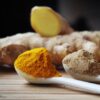It’s that time of the year again. The summer school holidays are edging closer and closer and while your kids are getting excited about the beach, sleepovers with their friends and endless days of summer fun, all you can think of is how exhausted you are going to be taking care of your super restless kids. As much as you love them, you would still like to have some time to love yourself when the holidays hit.
Why ADHD?
Attention deficit hyperactivity disorder is estimated to affect between 3% and 20% of school-aged children. It is a behavioural disorder, not an illness or a sign of low intelligence. Although genetics are theorised to play a role in the onset of ADHD, environmental factors are much more significant contributing factors, and one under appreciated area (still) are dietary and digestive factors.
Children with ADHD have three main symptoms:
- Inattention- having difficulty concentrating, forgetting instructions, moving from one task to another without completing anything
- Impulsivity- talking over the top of others, having short attention spans, being prone to accidents
- Over activity- constant restlessness and fidgeting.
The standard approach is medications such as Ritalin or Concerta yet as with many medications they possess potential side effects, such as: insomnia, headaches, abdominal pain, weight loss and depression. There have also been warnings given of stunted growth and psychiatric problems. From a holistic point of view, chemical overstimulation of the nervous system isn’t healthy. Fortunately, there are numerous other treatment options that can be effective for a large number of children.
Top 7 Things to Do for Your Child with ADHD:
1. Dietary Modifications
A foundational step is to remove additives from the diet. This simple step often brings about drastic improvements and for some, no further treatment may be required. It’s only certain additives that need to be removed and you can find out which ones to start with here
Sugar cravings and a high sugar intake are associated with hyperactivity, depression, moodiness and ADHD. Instead of just completely cutting it out, which has been shown to backfire in the long run with kids, is work out why the NEED for sugar i.e. why the cravings for sugar? A low glycaemic load diet, increasing proteins and fats is perfect for helping to balance out the ‘need’ for sugar.
And thirdly, your child may need to go on a low phenol or a low oxalate diet. Often children have a heavy metal burden which impacts on the detox pathways that phenols (such as salicylates) use, whilst too many oxalates in the diet might affect the health of the gut micro biome. See Probiotics.
2. Zinc
There is a good reason behind the phrase, ‘no zinc, no think.’ Zinc status is often deficient in children with ADHD. Zinc plays essential roles in neurotransmitter, neurological, immune and digestive function. It is also the primary nutrient required for methylation. With many kids with ADHD, zinc supplementation has been shown to reduce impulsivity and hyperactivity so you definitely want to consider zinc when treating your child.
3. Iron
When you think of someone who is iron deficient, you picture someone who is pale and tired- not a hyperactive child, bouncing off walls! Studies have shown that low serum iron and low ferritin levels are associated with ADHD. The lower the levels of ferritin- a protein found inside cells that store iron- the more severe the symptoms. Iron is not only essential in carrying oxygen to the muscles and organs, but it also plays an important role in the brain, affecting production of dopamine, a key neurotransmitter. Even in non-anaemic children, iron supplementation has helped to reduce symptoms of ADHD. So up those servings of iron-rich foods and don’t forget to add vitamin C to help with absorption.
4. Essential Fatty Acids
Studies have shown that children with ADHD have lower levels of omega-3 fatty acids than non-ADHD kids. EFAs are anti-inflammatory and by increasing the fluidity of cell membranes, they improve communication between cells and assist in efficient detoxification. Cod liver oil is the best oil to use as it not only contains EPA and DHA, but also has valuable vitamins D and A, both of which are often low in children with ADHD. But if you can’t get that cod liver oil in, then fish oil it is, because it’s easier to flavour and mask the fishy taste.
5. Magnesium
Magnesium is another micronutrient which is often low in children with hyperactivity, cognitive and mood disorders. Children need it not only for proper growth and development of bones, but also for brain development, immune system support and general wellness. It also plays a key role in the pathways of methylation and sulfation and is therefore essential to detoxification, a process often so important for children with ADHD.
6. Probiotics
Medical doctors, scientists, naturopaths and nutritionists alike are all starting to agree on one thing- good gut health equals better mental health. Probiotics are essential in virtually every child with ADHD. The high prevalence of digestive dysbiosis and immune imbalance in ADHD people indicates the need for beneficial bacteria to help restore digestive and immune function. Numerous studies have evaluated the connection between probiotics and ADHD and have concluded that by taking probiotics, the symptoms of ADHD may be reduced.
7. Lifestyle Recommendations
A child with ADHD can stretch your patience as well as the patience of all members of the family. Here are some strategies you can put in place to help reduce stress in the home:
- Develop consistent routines even during holiday times
- Keep rules clear and simple and give reminders calmly
- Get physically close to your child and make sure you have their full attention when you talk
- Only give your child one or two instructions at a time and ask them to repeat it to make sure they have understood
- Praise and reward your child when they are behaving appropriately and acknowledge their achievements
- Be clear about discipline for behaviour you find unacceptable
- Try to limit how much electromagnetic exposure your child is receiving by reducing screen time
- Try a 5-10 min/day relaxation regime with your child or if your child has trouble falling asleep try a bedtime massage.





